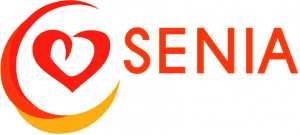We’ve all been thrown into our new teaching reality…we’ve gone virtual. It’s new, it’s tough, it’s exciting. While some of us are just starting our journeys, others have been doing it since all this started.
I’m uber excited about today’s guest Jessica Minahan. Jessica is a special educator, Behavior Analyst, and author from Boston, Massachusetts. As educators, parents, and professionals, we seem to always wonder why kids do what they do; behavior-wise. Jessica breaks this down for us.
Check out this information from a Friend of SENIA, IDS!
Children with special needs are amongst the hardest hit by school closures. A take home packet and online instruction developed for the average learner may work for the thousands of students learning from home, but this solution may be less than adequate for a child who learns differently and needs more supports and intervention. And what about the therapy?
As many parents know, working from home for one day when a child is home from school due to illness is at best distracting and at worst, completely non-productive. Now, factor in multiple children at home, excess energy from being cooped up, and the expectation that you are now your children’s educator- Math, English, Science, History, Art, Physical Education- oh my!
The task is daunting for many. In fact, I believe it is far easier to teach or treat other people’s children than to work with anyone in our own families. When considering that children with special needs require specialized instruction, the task of becoming an at-home educator for your child can seem insurmountable. It doesn’t need to be!
The IDS team can help. We are here to provide online coaching for parents who are home-schooling their children with special needs. Whether you are interested in regular sessions with our special educators, or check-ins once every week or two, you will have a dedicated special educator helping you to modify each lesson so that you and your child can be successful together.
Our goal is to keep your child on target to meet the goals and objectives that were developed as part of their learning plan or IEP. This means therapies, too! Our speech therapists, occupational therapists, behavior analysts, counselors, reading specialists, and psychologists can provide your child’s therapy right in your home. Through direct online therapy (telehealth), your child doesn’t have to miss a therapy session. We can even move with you when you choose a new job location or simply switch schools.
Let us help you help your child! Contact us to find out more: IDS School Closure Support or go to www.IDSalliance.com.
|
—
Please welcome our newest Local Chapter! On Monday, September 23rd, over 25 professionals, educators and parents gathered at Hanoi International School for a day of networking, visioning and momentum-building. We can support them by follow SENIA Vietnam on twitter @SeniaVietnam and visiting their developing website.
Congratulations SENIA Vietnam!
Looking to deepen your collective understanding of the science and philosophy behind the Response to Intervention (RtI) framework and how it can be used to inform our decision-making as international school teams? Check out the RTI for International Schools Conference! The 1st annual conference will be held in Singapore, October 24-26, 2019. There’s still time to register! Bring your school teams!
If you would like more information on speakers and registration information, check out https://www.rtiforinternationalschools.org/
Announcing the 2020 SENIA Conference theme!
Beyond Inclusion: Embracing the Integrated Experience
Start thinking about potential conference topics. The call for presenters will be coming shortly.
SENIA India held their initial conference at Stonehill International School’s Learning Hub in Bangalore on 2nd March 2019.
Members of the board and other interested teachers met and discussed how inclusion works in their schools, things they are proud of, and some of the challenges that they are facing. Many of these challenges were common to all schools so we hope to develop our network of contacts to support inclusion and professional development opportunities across India.
Angelle Thibodeaux, SENIA India board member and SENIA teacher rep from the American School of Bombay, shared her expertise in meeting sensory needs with over 45 teachers. Learning support, homeroom and specialist teachers were eager to find out how they can better support their students. Not only was the session very informative, with lots of ‘ah ha’ moments, it finished with some practical activities using yoga balls that could be taken back to the classroom and used immediately.
For our final session, Lia Bartholomew from Autism Teaching Institute in Melbourne, developed teachers’ understanding of ASD and how to meet the needs of students with Autism in mainstream settings. With over 25 teachers in attendance, Lia shared practical strategies, resources, responded to questions and even offered to support teachers via email and in their classes. We are very grateful to have such an amazing resource available to us.
Thank you so much to all the teachers who attended the conference and shared their energy and enthusiasm with us all!
Maria Hamblin
SENIA India Chairperson
Head of Learning Support, Stonehill International School
Are you in India, or know someone who works in India? Connect with the SENIA India Local Chapter HERE.
SENIA India Local Chapter Board Members:
Maria Hamblin, Sarika Umamahesh, Angelle Thibodeaux (Beth Rappe absent)




















